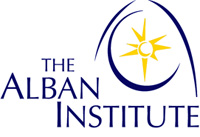 Travis Scholl, managing editor of theological publications at Concordia Seminary – St. Louis, recently reflected on what some view as signs that we are at or nearing the end of an era. More specifically, he mentioned two recent news stories: (1) Alban Institute’s decision to shut its doors and (2) the Unitarian Universalist Association’s decision to sell its historic headquarters atop Beacon Hill in Boston.
Travis Scholl, managing editor of theological publications at Concordia Seminary – St. Louis, recently reflected on what some view as signs that we are at or nearing the end of an era. More specifically, he mentioned two recent news stories: (1) Alban Institute’s decision to shut its doors and (2) the Unitarian Universalist Association’s decision to sell its historic headquarters atop Beacon Hill in Boston.
Scholl places these changes in their appropriate historical context:
as we come down from the religious high tide of 50 years ago, it only stands to reason that the first institutions to feel the effects are the corporatized denominational headquarters (and the para-church organizations paralleling them) that were its result.
So What?
While Scholl sees more downsizing of what he terms the “corporate structures” of denominations, he also envisions these shifts will result in a more “organic, grass roots, bottom-up approach to religious practice.” When I first learned of Alban’s closing I asked a question on Facebook that yielded significant response: Is the closing of Alban a sign of the real beginning of the end for mainline structures, including denominations or an isolated decision?
Denominations have been shrinking for some time. Mainline denominations have had to learn to try to continue doing what they have done with smaller budgets or to begin rethinking what it is that they should be doing at the denominational level to support and empower the people and organizations within the denomination. To date most changes have been less radical than one would expect given the continued decline in membership and funding.
While I do believe there is a future for denominations, I don’t think they will look much like what they have for the last 50+ years. I also don’t think that downsizing alone will lead to the hopeful “organic, grass roots, bottom-up approach to religious practice” envisioned by Scholl.
- What language would you use to describe the relative health of denominations as they exist in 2014? What about your own denomination?
- Looking forward 10-20 years, what types of macro changes do you feel are needed to restore and/or continue (depending on your perspective) the relevance of denominations?
- If you could join only one of two identical congregations and one had ties to an historic mainline denomination and the other had no link to any denomination, which would you be more likely to join and why?